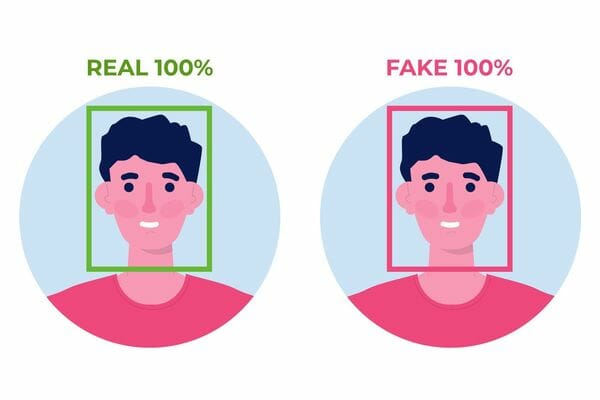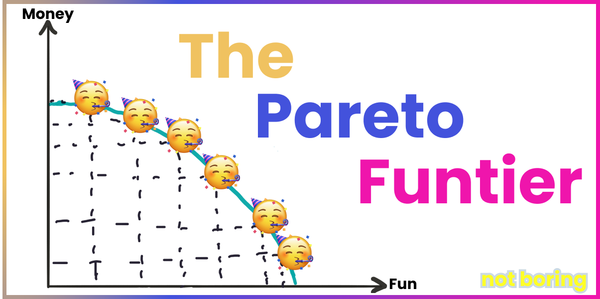On the 15th of October our book “Real Fake – Playing with Reality in the Age of AI, Deepfakes and the Metaverse” has been released. It is our take on synthetic media, deepfakes, fake news, conspiracy theories, memes, crypto, narrative economics, virtual humans, CGI influencers, vTubers, NFTs, DAOs, VR, Web 3.0, the Creator Economy and the Metaverse. Real Fake is about how humans continuously manipulate reality and how new digital technology tools enable us to go one step further in this ancient game.
Birds Aren’t Real: Inside a Gen Z Conspiracy Theory

“On Instagram and TikTok, Birds Aren’t Real accounts have racked up hundreds of thousands of followers, and YouTube videos about it have gone viral. It’s a Gen Z-fueled conspiracy theory, which posits that birds don’t exist and are really drone replicas installed by the U.S. government to spy on Americans. Hundreds of thousands of young people have joined the movement, wearing Birds Aren’t Real T-shirts, swarming rallies and spreading the slogan. […] What Birds Aren’t Real truly is, they say, is a parody social movement with a purpose. In a post-truth world dominated by online conspiracy theories, young people have coalesced around the effort to thumb their nose at, fight and poke fun at misinformation. It’s Gen Z’s attempt to upend the rabbit hole with absurdism.”
Football Fans Spending Millions On Club Crypto-Tokens

“More than £262m ($350m) has been spent on fan tokens. Many buyers are speculatively trading their tokens like other crypto-currencies in an attempt to make money. But the value of many fan tokens had decreased since they were initially sold by the clubs.”
Where is the regulation?
Crypto States And Great Protocol Politics

“Not only has technology already changed the global order, but it is also changing the nature of both companies and states themselves. The 21st century belongs not to China or the United States—nor to tech companies as traditionally understood. It belongs to the internet.”
In other news: “Kong Land is an example of a crypto-state with the community, manufacturing capabilities and expertise to compete for an open metaverse. As they develop, crypto projects that operate like states will compete with big corporates and nation-states as new political actors.”
Deepfake Technology Is Now a Threat to Everyone. What Do We Do?

“Deepfake technology is now at an inflection point: Thanks to a number of free deepfake apps that are just a Google search away, anyone can become a victim of such a scam.”
The Pareto Funtier

“When people talk about web3 merging culture and finance, or “financializing culture […] Financializing sounds like a dirty word, but put another way, it’s giving people a chance to earn money while they do what they find fun.”
Getting Married In The Metaverse

“Because of the Covid-19 pandemic, technology is already being incorporated into ceremonies more than ever. […] The possibilities of having an event unfettered by the bounds of reality are interesting enough to consider.”
‘The Beatles: Get Back’ shows that deepfake tech isn’t always evil

“So can this deepfake technology be used for evil? Yes. But if Get Back proves anything, it shows it can be used for “deep restoration” as well. A great deal of vintage content can be repaired in this way, be it original films or archival footage that can make it look brand new again – or the freshest they have ever looked and shown on modern content delivery platforms.“
Beautiful Lies: The Art of the Deep Fake
“The spread of ever more realistic deep fakes will make it even more likely that people will be taken in by fake news and other lies. The havoc of the last few years is probably just the first act of a long misinformation crisis. Eventually, though, we’ll all begin to take deep fakes for granted. We’ll come to take it as a given that we can’t believe our eyes. At that point, deep fakes will start to have a very different and perhaps even more pernicious effect. They’ll amplify not our gullibility but our skepticism. As we lose trust in the information we receive, we’ll begin, in Giansiracusa’s words, to “doubt reality itself.” We’ll go from a world where our bias was to take everything as evidence — the world Sontag described — to one where our bias is to take nothing as evidence.”
Digital Land Rush

“A growing number of investment firms are acquiring digital land in worlds such as the Sandbox and Decentraland, where players simulate real-life pursuits, from shopping to attending a concert. They are betting that individuals and companies will spend money to use virtual homes and retail space and that the value of properties will increase as more people join the worlds.”
MUST WATCH: The Matrix Awakens: An Unreal Engine 5 Experience
MUST WATCH: What Does Keanu Think Of NFTs?
MUST WATCH: Shiba Inu’s Rise Signals New Meme Coin Cryptocurrency Trends
REPORT: Crypto Theses For 2022
“Key trends, people, companies, and projects to watch across the crypto landscape, with predictions for 2022”
REPORT: The 2021 NFT Market Explained
“Non-fungible tokens (NFTs) have skyrocketed in popularity over the last year. NFTs are blockchain-based digital items whose units are designed to be unique, unlike traditional cryptocurrencies whose units are meant to be interchangeable. NFTs can store data on blockchains — with most NFT projects built on the Ethereum blockchain — and that data can be associated with files containing media such as images, videos, and audio, or even in some cases physical objects. NFTs typically give the holder ownership over the data, media, or object the token is associated with, and are commonly bought and sold on specialized marketplaces, which we’ll explore in more detail later on in the report.”
Contact
Playing with Reality is a weekly newsletter in which SogetiLabs’s Research Institute VINT examines the future where synthetic reality becomes part or our objective reality. We investigate the impact of new technology on people, organisations and our society. If you have any questions or comments, do not hesitate to contact us. You can reach us at vint@sogeti.com.

 English | EN
English | EN 